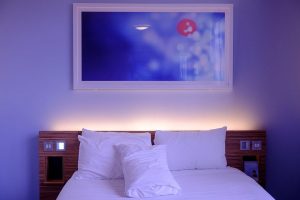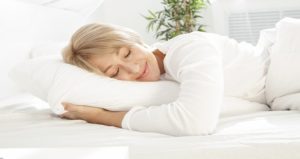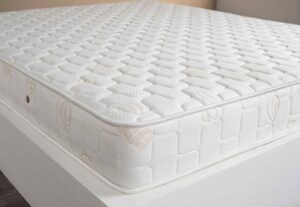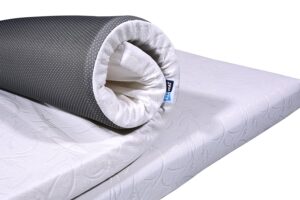5 CPAP Alternatives to Treat Sleep Apnea

CPAP can be an effective treatment for sleep apnea, but there are some alternatives to CPAP for obstructive sleep apnea that can help you find relief and get better sleep without a CPAP machine. If you are interested in finding out more about these treatments, read on.
1. BiPAP Therapy
CPAP (Continuous Positive Airway Pressure) is the most common treatment for obstructive sleep apnea. However, it is not for everyone. It can cause uncomfortable side effects. So, some sleep apnea sufferers opt for BiPAP therapy instead.
BiPAP therapy is similar to CPAP therapy in that it helps regulate breathing while asleep. It also provides different air pressure levels for inhalation and exhalation. The higher the air pressure, the more work the breathing muscles have to do. It can also help to regulate blood oxygen levels while asleep.
BiPAP therapy may be more effective for certain sleep apnea symptoms than CPAP therapy. It is best to speak with your doctor about the options for BiPAP therapy. They can also advise you on the best pressure levels.
It is important to try out different masks and pressure levels. If you are experiencing leaks or a tight fit, your doctor may need to adjust the mask or re-fit it. It may also be necessary to change the straps around the mask.
2. Oral Appliance Therapy
CPAP is an effective treatment for sleep apnea, but oral appliance therapy is also effective. An oral appliance for sleep apnea helps to keep the airway open by moving the lower jaw forward.
Oral appliance therapy is a simple and easy way to treat obstructive sleep apnea. It is a portable, thin device that fits over the teeth like a mouth guard. It is easy to clean, and it is less intrusive than CPAP.
The American Academy of Dental Sleep Medicine endorses an oral appliance for sleep apnea. A dentist will fit the device for you and provide instructions on how to use it. Oral appliance therapy can be a good choice for patients with obstructive sleep apnea, as well as those with loud snoring or frequent pauses during sleep.
Oral appliance therapy is not a cure for sleep apnea, and it may not be suitable for everyone. It is best for people with mild to moderate obstructive sleep apnea.
3. Oral Nerve Stimulation
CPAP is the first-line treatment for obstructive sleep apnea (OSA), but it is not for everyone. A number of treatments are now available, including oral appliances and surgery. Many sleep apnea clinics offer a number of alternatives to CPAP for obstructive sleep apnea patients resistant to first-line CPAP therapy.
An oral appliance for sleep apnea is similar to a mouthguard worn for sports. It moves the lower jaw forward, thereby expanding the airway. It also holds the tongue in place. The device is more effective at treating mild to moderate OSA than CPAP. It is not for all patients and may not work for patients with more severe sleep apnea.
Oral appliances have been used for OSA because of the limitations of CPAP. These devices can be custom-fitted to fit the patient’s mouth.
4. Positional Therapy
CPAP is considered the gold standard of sleep apnea treatment in Beverly, MA. It is a machine that carries pressurized air through the nose and mouth. This prevents the airway from blocking during sleep. However, it has a number of disadvantages, including high blood pressure and heart arrhythmia.
In some cases, patients will need to use a CPAP alternative to treat their sleep apnea. However, these alternatives are not as effective as CPAP, and they may not be suitable for all patients.
For patients who do not tolerate CPAP, a vibratory positional therapy device may be an alternative. These devices vibrate in the neck or chest, which may help the airway to open. The device does not have to be worn throughout the night. However, there have not been as many studies of vibratory PT devices as there have been of CPAP.
5. Weight Loss
CPAP, continuous positive airway pressure, is a standard treatment for sleep apnea. In about 75 percent of patients, CPAP relieves sleep apnea symptoms. But it isn’t the only sleep apnea treatment option. Weight loss can reduce symptoms and improve sleep quality.
One study showed that a ten percent weight loss over six months could improve sleep apnea symptoms. It also lowered apnea-hypopnea index scores.
Another study examined CPAP as a sleep apnea treatment in Beverly, MA, but found no reduction in the apnea-hypopnea ratio. The study was conducted in a small group of obese patients with mild OSA.
A new study found that a ten percent weight loss can improve sleep apnea. But the study also found that CPAP wasn’t the only treatment option. There were several other options available, such as a device that attaches to the waist or an oral appliance for sleep apnea.
AUTHOR BIO
Dr. Polan, the most trusted sleep apnea doctor in Beverly, MA, has been helping patients at the Exceptional Sleep and TMJ clinic. He has over 38 years of experience in general and cosmetic dentistry and sleep apnea treatment in Beverly, MA. He currently resides on the northern shores of Massachusetts and loves spending time with his family, along with his Tibetan Terriers.






